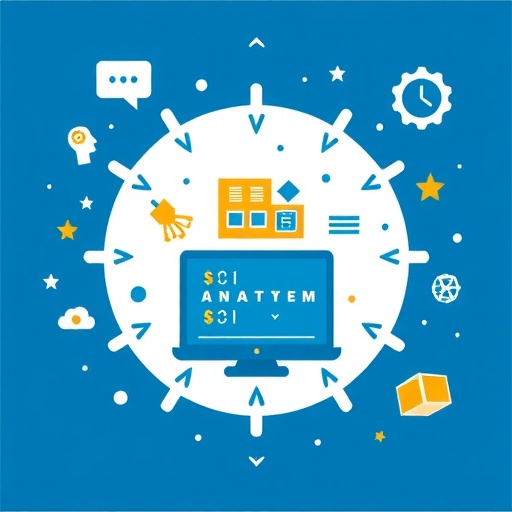In the contemporary educational landscape, the assessment of Information and Communication Technology (ICT) competence among students has emerged as an essential facet of educational research. This need stems from the digital era, where digital literacy intersects with traditional literacy in mathematics, science, and reading. A significant investigation into this phenomenon is presented in the recent work by Acun Çelik, Özkan Elgün, and F. Kalelioğlu, which delves into the nuances of student ICT competence as evidenced by data from the Program for International Student Assessment (PISA) 2018.
The PISA framework provides a global lens through which educational outcomes can be compared across different nations. Conducted every three years, the assessment evaluates 15-year-old students in subjects such as reading, mathematics, and science, while recently incorporating elements that gauge students’ ability to use digital tools and platforms effectively. The authors focus on how these competencies correlate with traditional academic skills, thereby framing the dialogue around the importance of a digitally competent future workforce.
An essential argument presented in this study is that integration of ICT into pedagogical practices not only enhances students’ academic performance but also prepares them for the complexities of the modern world. In particular, proficiency in ICT is more than mere familiarity with devices; it encompasses critical thinking, problem-solving skills, and the ability to communicate and collaborate effectively. The researchers emphasize that students equipped with robust ICT skills demonstrate a greater capacity to engage with mathematical problems, scientific inquiries, and reading comprehension tasks.
Moreover, the findings suggest that there is a statistically significant relationship between students’ performance in math, science, and reading literacy and their ICT competence. This raises critical questions for educators and policymakers regarding the integration of technology into curricula. Are schools doing enough to foster these essential skills? What implications do these findings have for teacher training and curriculum development?
As education increasingly shifts toward blended and online learning environments, the role of ICT becomes paramount. The study illustrates that students who engage in digitally enriched learning landscapes tend to perform better academically. This suggests that educational strategies that fail to incorporate ICT may inadvertently hinder student capability and engagement. Thus, continuous professional development for teachers in the area of ICT is not merely advantageous but essential.
Additionally, the authors explore the disparity in ICT competence among students from different socio-economic backgrounds. Their research indicates that students from privileged backgrounds often have greater access to technology and digital resources, thus experiencing an advantage in ICT competence. This wealth gap leads to unequal educational opportunities, the ramifications of which can hold students back from achieving their full potential. The urgency to bridge this digital divide must be addressed at all levels of policy-making.
Furthermore, the research addresses the role of assessment in understanding ICT competence. Traditional assessments primarily focus on content knowledge, but the integration of ICT skills into the evaluative framework allows educators to gauge a student’s potential more holistically. Moving forward, there is a need for assessments that reflect not only how well students can recall information but also how adeptly they can utilize technology to solve problems and communicate ideas.
The importance of a multi-dimensional assessment strategy cannot be overstated. By integrating ICT assessments into broader academic evaluations, educators can identify areas where students excel and where they may need additional support. Such measures can help tailor educational experiences to meet individual student needs, facilitating a more personalized approach to learning that acknowledges the diversity present within classrooms.
Moreover, the research highlights the necessity for a curriculum that evolves alongside technological advancements. As technology rapidly transforms, so must the educational approaches that prepare students to navigate these changes. The authors underscore the importance of revising educational standards and curricula to ensure they remain relevant in an ever-evolving digital landscape.
The paper further advocates for international collaboration in sharing best practices for integrating ICT into educational systems. Countries can learn from one another’s experiences to develop strategies that enhance student ICT competence on a global scale. This collaboration should extend beyond curriculum sharing, encompassing joint research initiatives that explore the efficacy of different pedagogical approaches in fostering ICT skills.
Importantly, the findings of this research not only contribute to existing educational literature but also call for immediate action. Policymakers, educators, and stakeholders in the education sector must utilize this evidence to implement comprehensive strategies that cultivate ICT competence across all student demographics. The goal is not just to produce tech-savvy graduates but to equip them with the critical skills required for life in a digital world.
In conclusion, Acun Çelik, Özkan Elgün, and F. Kalelioğlu’s work underscores the interconnectedness of ICT competence and traditional educational outcomes. Their findings advocate for integrated educational practices that consider the multifaceted nature of literacy in the 21st century. Moving forward, it is imperative to recognize ICT not simply as an auxiliary skill but as a foundational component of effective education in a technology-driven society.
By prioritizing the development of ICT skills alongside traditional literacy, educational institutions can better prepare students for the challenges of the future, ensuring that they emerge not only as learners but as informed and engaged participants in a digital world. The call to action is clear; the future of education must be informed by rigorous research and a commitment to evolving pedagogical practices that reflect the realities of today’s interconnected society.
Subject of Research: Assessment of student ICT competence according to mathematics, science, and reading literacy.
Article Title: Assessment of student ICT competence according to mathematics, science, and reading literacy: evidence from PISA 2018.
Article References:
Acun Çelik, S., Özkan Elgün, İ. & Kalelioğlu, F. Assessment of student ICT competence according to mathematics, science, and reading literacy: evidence from PISA 2018. Large-scale Assess Educ 12, 30 (2024). https://doi.org/10.1186/s40536-024-00218-7
Image Credits: AI Generated
DOI: 10.1186/s40536-024-00218-7
Keywords: ICT competence, digital literacy, PISA 2018, student assessment, education reform, technological integration, socio-economic disparity in education.




